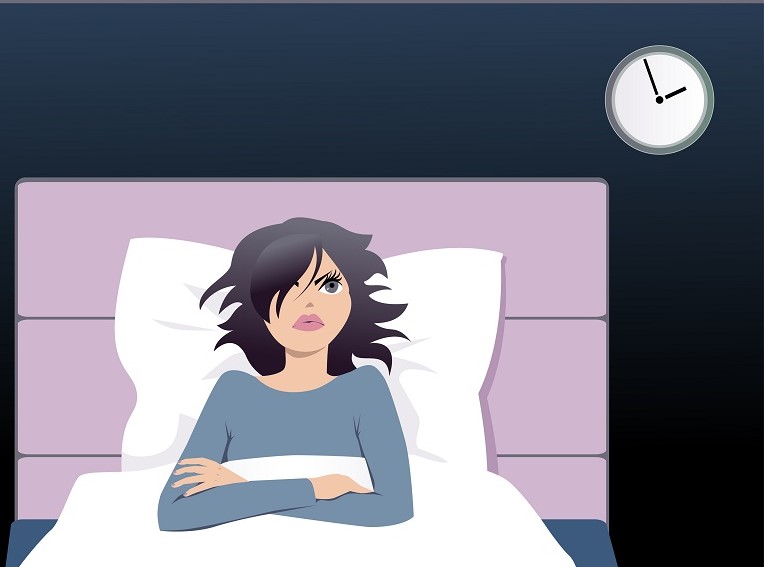Healthy Sleep Tips For Getting A Better Night’s Sleep
That first night that you can’t fall asleep is an inconvenience. When it becomes a consistent issue, it becomes a real problem physically, mentally and emotionally. The following ten tips can help you achieve sleep and the benefits sleep provides. Try these tips and if you still have trouble falling asleep, maintaining sleep, awaken earlier than you wish, feel unrefreshed after sleep or suffer from excessive sleepiness during the day. If you are still having problems, contact our office to make a consultation. Sleep is as important as breathing and insomnia can escalate if not addressed sooner than later.
- Establish a regular, relaxing bedtime routine such as soaking in a hot bath then reading a book or listening to soothing music.
- A relaxing, routine activity right before bedtime will help separate your sleep time from activities that can cause excitement, stress or anxiety.
- Avoid arousing activities before bedtime like working, paying bills, engaging in competitive games or family problem-solving.
- Some studies recommend soaking in a hot bath or hot tub before bed to ease the transition into deeper sleep
- If you are unable to avoid tension and stress, it may be helpful to learn relaxation therapy from a trained professional.
- Create a sleep-conducive environment that is dark, quiet, comfortable and cool.
- Design your sleep environment to establish the conditions you need for sleep. Cool, quiet, dark, comfortable and free of interruptions.
- Also make your bedroom reflective of the value you place on sleep.
- Check your room for noise or other distractions, including a bed partner’s sleep disruptions such as snoring, light, and a dry or hot environment.
- Consider using blackout curtains, eye shades, ear plugs, “white noise,” humidifiers, fans and other devices.
- Shut off your computer at least 2 hours before bed and try not to use a tablet for reading or your smartphone. The light may affect your melatonin.
- Sleep on a comfortable mattress and pillows.
- Make sure your mattress is comfortable and supportive. The life expectancy of a good quality mattress is approximately 9 to 10 years.
- Have comfortable pillows and make the room attractive and inviting for sleep.
- Use your bedroom only for sleep and sex only.
- Finish eating at least 2-3 hours before your regular bedtime. It is best to avoid a heavy meal too close to bedtime.
- Also, avoid spicy foods which may cause heartburn, which leads to difficulty falling asleep and discomfort during the night.
- Try to restrict fluids close to bedtime to prevent nighttime awakenings to go to the bathroom, though some people find milk or herbal, non-caffeinated teas to be soothing and a helpful part of a bedtime routine.
- Exercise regularly. It is best to complete your workout at least a few hours before bedtime.
- Avoid caffeine (e.g. coffee, tea, soft drinks, chocolate) close to bedtime. Caffeine is a stimulant, which means it can produce an alerting effect. Caffeine products, such as coffee, tea, colas and chocolate, remain in the body on average from 3 to 5 hours, but they can affect some people up to 12 hours later.
- Avoid nicotine (e.g. cigarettes, tobacco products). Nicotine is also a stimulant.
- Avoid alcohol close to bedtime. Although many people think of alcohol as a sedative, it actually disrupts sleep, causing nighttime awakenings. Consuming alcohol leads to a night of less restful sleep.
- Maintain a regular bed and wake time schedule including weekends.” Our sleep-wake cycle is regulated by a “circadian clock” in our brain and the body’s need to balance both sleep time and wake time. A regular waking time in the morning strengthens the circadian function and can help with sleep onset at night.
Try these tips and if you still have trouble falling asleep, maintaining sleep, awaken earlier than you wish, feel unrefreshed after sleep or suffer from excessive sleepiness during the day- you should contact our office. Our Sleep Doctors are specialists in treating sleep disorders.

